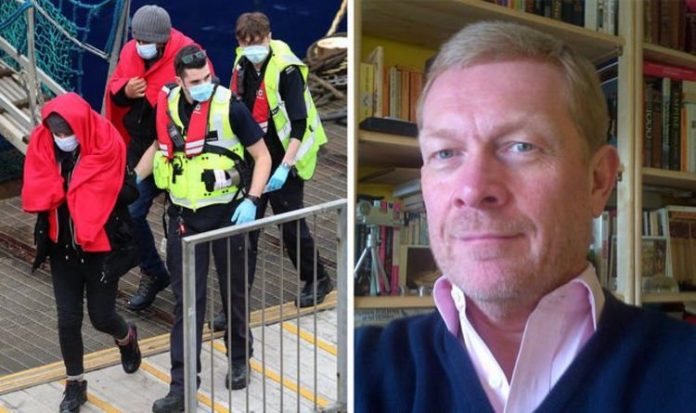David Bolt, the Independent Chief Inspector of Borders and Immigration, found many of those who were not eligible for asylum were bailed instead of being held in detention centres. Many then went on the run. Nearly 8,000 people have made it into the UK after making the Channel crossing this year – more than four times the number in 2019. A succession of ministers, and Prime Minister Boris Johnson, have pledged the majority would be returned under regulations that say refugees should claim asylum in the first safe country reached.
However, only a few hundred have ever been removed.
Mr Bolt, who last week published a report on his inspection of clandestine entry methods, spoke with staff at the UK Visas and Immigration Kent Intake Unit in Dover.
He wrote: “Once the unit had granted immigration bail to small boats migrants whom it had established should be returned, ‘a large number’ failed to comply with their reporting restrictions and became absconders.
“They believed this explained the low number of returns and felt that more use could be made of detention for small-boats migrants.” Sir John Hayes MP, chairman of the Common Sense Group of politicians, said it’s vital that illegal migrants are detained while cases are processed.
He added: “There may well be legitimate asylum seekers, and that process needs to be dealt with much more quickly, with people in secure accommodation where they are not able to disappear.
“The fact that some have wanted to go underground makes it seem they are not genuine.”
“In his report, Mr Bolt also found that the focus on the Channel had left other coastal areas open to crossings.
The Home Office said: “Home Secretary Priti Patel is determined to make Channel crossing unviable.
“She has also made clear that we are determined to deal with the criminal gangs who put the lives of vulnerable people at risk.
“We are working closely with European authorities.”
In others news, earlier this month Baroness Williams of Trafford revealed figures showing that, in the past three years, 3,740 foreign national offenders were not deported after serving their sentences.
Most were due to human rights challenges from having family here.
Alp Mehmet, chairman of Migration Watch, said: “There are too many barriers to deportation which prevent or delay the removal of foreign criminals.”







